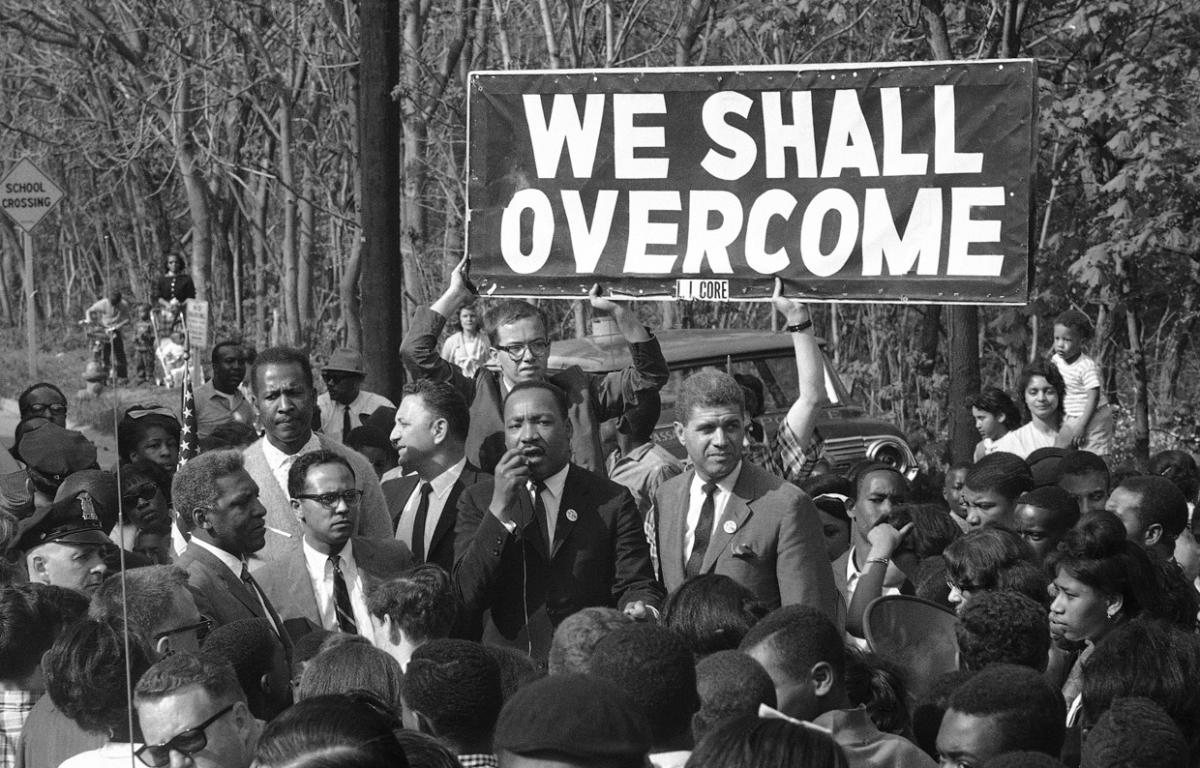Today is Martin Luther King, Jr. Day, a time for Americans to pause and reflect on the life and legacy of the civil rights leader.
RELATED: Clarksville NAACP chapter cancels MLK Day events
Born in Atlanta, Georgia, on Jan. 15, 1929, King led the Montgomery Bus Boycott in 1955 and helped organize the historic 1963 March on Washington. His “I Have a Dream” speech went on to become one of the most iconic moments in American history and a resounding call for an end to racism.
Here is a collection of photos from the Associate Press archives, some that are well known and others that may be less familiar to wide audiences.

The Rev. Martin Luther King Jr., right, accompanied by Rev. Ralph D. Abernathy, center, is booked by city police Lt. D.H. Lackey in Montgomery, Ala., on Feb. 23, 1956. The civil rights leaders are arrested on indictments turned by the Grand Jury in the bus boycott. (AP Photo/Gene Herrick)

The Rev. Martin Luther King Jr. is welcomed with a kiss by his wife Coretta after leaving court in Montgomery, Ala., March 22, 1956. King was found guilty of conspiracy to boycott city buses in a campaign to desegregate the bus system, but a judge suspended his $500 fine pending appeal. (AP Photo/Gene Herrick)

A makeup man puts a little powder on Martin Luther King’s brow before a television program in Washington, Aug. 13, 1957. The president of the Southern Christian Leadership Conference discussed the current racial situation on NBC’s “Meet the Press” program. (AP Photo/Henry Burroughs)

Rev. Martin Luther King Jr., seen with his wife, Coretta, is at a Harlem hospital in New York City during a news conference on Sept. 30, 1958. The clergyman was stabbed near the heart by a woman who asked for his autograph in a Harlem department store on Sept. 20. The nurse in the background is Louise Stone.

Dr. Martin Luther King Jr., head of the Southern Christian Leadership Conference, addresses marchers during his “I Have a Dream” speech at the Lincoln Memorial in Washington D.C. Aug. 28, 1963.

Dr. Martin Luther King, Jr. reacts in St. Augustine, Fla., after learning that the senate passed the civil rights bill, June 19, 1964.

The Rev. Martin Luther King, third from right, head of the Southern Christian Leadership Conference, was among national figures present on July 2, 1964, as President Lyndon B. Johnson signed the Civil Rights Bill. From left, standing , as Johnson passes some of the 72 pens used: Rep. Roland Libonati, D-Ill; Rep. Peter Rodino, D-NJ; Rev. King; Rep. Emanuel Celler, D-NY, and Whitney Young, executive director of the National Urban League.


